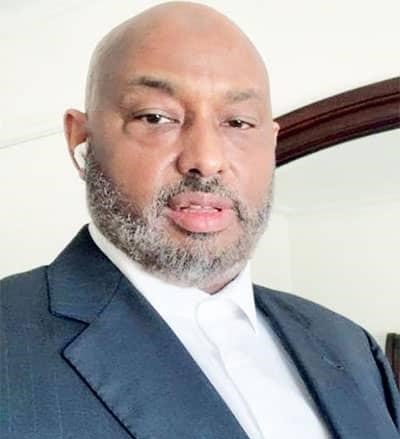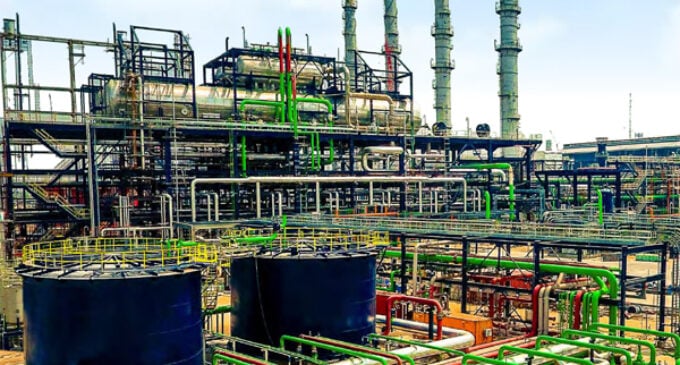The Standards Organisation of Nigeria (SON) has said that locally produced goods must adhere strictly to standards to be competitive globally.
The Director General of SON, Malam Farouk Salim, stated this at the flag off of a campaign tagged “Standardisation; Panacea for economic growth” in Enugu. (When?).
The SON boss said that adhering strictly to standardisation and quality assurance would make Nigerian products and services more acceptable at the international market.
Salim, who was represented by the Director South-East Operations of SON, Mr Fred Akingbesote, noted that when all products and services conform to standards, the country and her people would benefit tremendously from it.
He explained that there was standard for every product or service, adding that upholding standardisation even in service industry of hospitality, tourism and hotel would create international markets and patronage for such services.
The SON boss said standardisation would also lead to cost reduction, less effort on production, strengthen brands and make it convenient and easy for customers to recognise and pick quality products and services.
“If you see any product with SONCAP certification logo, rest assured that you have got a product with quality and satisfaction guaranteed.
“It provides a company with a competitive edge in the market. “Manufacturers and service providers need to ensure that their products and services meet the right specifications and deliver on their customers’ expectations.
“When a company assesses its products and services in accordance with relevant standards, this helps the company to adapt to the latest market trends regarding quality.
“And avoid the costs related to product returns, buyer complaints, and loss of goodwill in local, regional, and international markets,” the SON DG said.
Earlier, the Senior Special Assistant (SSA) to the SON DG, Chief Duru Emeka, who doubles as coordinator of the sensitisation, said it was part of the agency efforts to take culture of standardisation to the grassroots.
“Once the people in rural areas imbibed standardisation as a way of life, the fight against influx of substandard products is almost won.
“We need collaborative efforts to tackle the menace,” he said.
Duru said that Nigerian products were produced in line with international best practices and enjoy global competitiveness in line with the organisation’s quality infrastructure strategy under the able leadership of Mallam Farouk Salim.
“This will reduce the rejection of some of our products at export market, increase industrialisation and wealth creation,” Duru said
Duru subsequently urged the participants to consider the sensitisation workshop as an opportunity to broaden their scope saying, Enugu is the first to benefit from this particular sensitisation series.
He charged stakeholders to remain committed and focused on ensuring standardisation at all times.
The stakeholders in the manufacturing, consumption, service and allied businesses commended SON for the workshop.
The stakeholders also urged the organisation to extend its services to the grassroots.
They were of the view that once the message of standardisation is achieved even at the local communities, it would in turn have a positive socio-economic effect on the country in general.
The Permanent Secretary, Enugu State Ministry of Commerce and Industry, Dr Godwin Anigbo, urged SON to extend its services to the grassroots by creating more awareness on standardisation of products and services.
“We need robust engagement with the people at the grassroots in the local areas to enable them know how they can attain and maintain internationally acceptable standard for any endeavour they engage in.
“Once majority of our local people start doing the right things and getting it right; our products and services will be the best internationally and the country will be better for it,” Anigbo said.
Mr Felix Odoh, Deputy Director of National Orientation Agency (NOA) in Enugu State, said that SON could leverage on the spread of NOA officials scattered in the 774 council areas to reach Nigerians even in their localities.
“This sensitisation and enlightenment should go beyond here and get more Nigerians, especially the people at the grassroots to know the standard for all they produce at their localities,” Odoh said.
A consumer, Mrs Vivian Offor, said that the sensitisation would make more meaning if those at the local areas, whose extract raw materials add value to them could achieve quality standardisation.
“Something as simple as palm oil should be produced to standard with good packing to ensure better value and more gain for the ordinary Nigerians that engage in such endeavours,” Offor said.
Earlier, the Managing Director of Enugu State Investment Development Authority, Dr Sam Ogbu-Nwobodo, lauded SON for its consistence on its engagement of Nigerians to do the right thing and reposition the country’s economy.
“The issue of standardisation is important and it will be helpful to everybody and we must key into it.
”This is the only way to ensure we grow our economy and ensure conformity of our products and services,” Ogbu-Nwobodo said.
An Enugu-based manufacturer, Sir Eric Chime, noted that manufacturers and SON were both partners in progress, adding that SON had continued to ensure Nigerian products met international standard and acceptability.
“Apart from meeting international conformity and acceptability, standardisation also help the consumer not to be short-changed and quality guaranteed at all time.
“Standardisation also leads to better profit and international market opening for the manufactured products,” said Chime, who is the Chief Executive Officer of RICO Group of Companies manufacturers of petro-chemical products, said.
Mrs Ijeoma Ezeazor, representative of the President, Manufacturers Association of Nigeria (MAN), Ahmed Mansur and Chairman, Anambra, Ebonyi and Enugu States of MAN, made a presentation on “Expanding Products Market Share via Standards”.
She urged the Federal Government to support in the fight against substandard products.
She noted that the menace was detrimental to the government efforts to industrial growth.
“ Our products can’t compete favorably with the low cheap products from some countries.
“We are in partnership with SON to address the problem,” she said.
Other SON officials also made presentations on MANCAP and Certification; SONCAP and Registration as well as Import and Export Requirements and “Driving Industrialisation with Quality Products”.
The sensitisation also witnessed question and answer sessions as well as goodwill messages from the Nigeria Immigration Service; National Drug Law Enforcement Agency and Nigeria Security and Civil Defense Corps among others.

 News3 years ago
News3 years ago
 Entertainment2 years ago
Entertainment2 years ago
 News3 years ago
News3 years ago
 Privacy3 years ago
Privacy3 years ago
 Sports2 years ago
Sports2 years ago
 Entertainment2 years ago
Entertainment2 years ago
 News3 years ago
News3 years ago
 Opinion3 years ago
Opinion3 years ago















